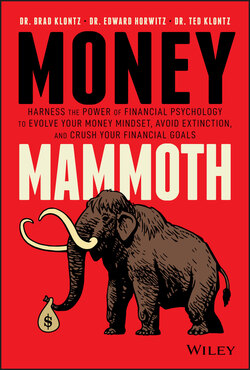Читать книгу Money Mammoth - Ted Klontz - Страница 57
TALK ABOUT MONEY (BUT NOT TOO MUCH)
ОглавлениеA big mistake parents make is not talking to their kids about money. Talk to them about money. If they ask a question such as “How much money do you make,” tell them. Ask them what prompted them to ask. If they say something to the effect of “We're rich, aren't we?,” ask them what rich means to them, and then tell them what it means to you. If you must take some time to figure out what to say, do that, but answer their question. If you don't, someone else will. Maybe TV will; maybe a friend will; maybe a book will; or maybe they will decide for themselves what is real. Like the subject of sex, most parents want to have the chance to at least give their children their input, share their values, their dos and don'ts. That won't just happen on its own; parents must make sure it happens on their terms as much as possible.
Many parents make the mistake of not talking to their children about money. However, it is possible to make mistakes in the other direction: that of sharing too much financial information. In our research, sharing financial information that may make a parent feel better, but the child feels worse, is referred to as financial enmeshment.9 One of the incredibly injurious, but all too common, ways kids learn about money and its power to build and destroy is for parents to involve their children in money issues that are not appropriate.
If you and your partner have unresolved issues around money, especially those in which you are not in agreement, get some help and come to an agreement—the same as you would if you had differing ideas about how to raise your children. Find agreement. If you have secrets around money, either work those out with your partner or don't tell your children about them.
Raising financially healthy children starts with you. You need to understand your own financial psychology: your beliefs, your worries, your feelings, your hang-ups. Your personal insight is critical. Also, don't forget to think about the other people in your life and what they are teaching your children about money. You may need to politely ask their grandparents, for example, to hold off on teaching them about money, especially if you aren't happy with what they taught you.
Remember, your children are learning about money from you, from what you say or from your silence. Take some time to think about what you want your children to know, and then think about the messages you want to pass down to them in your discussions and, more important, by your examples.
